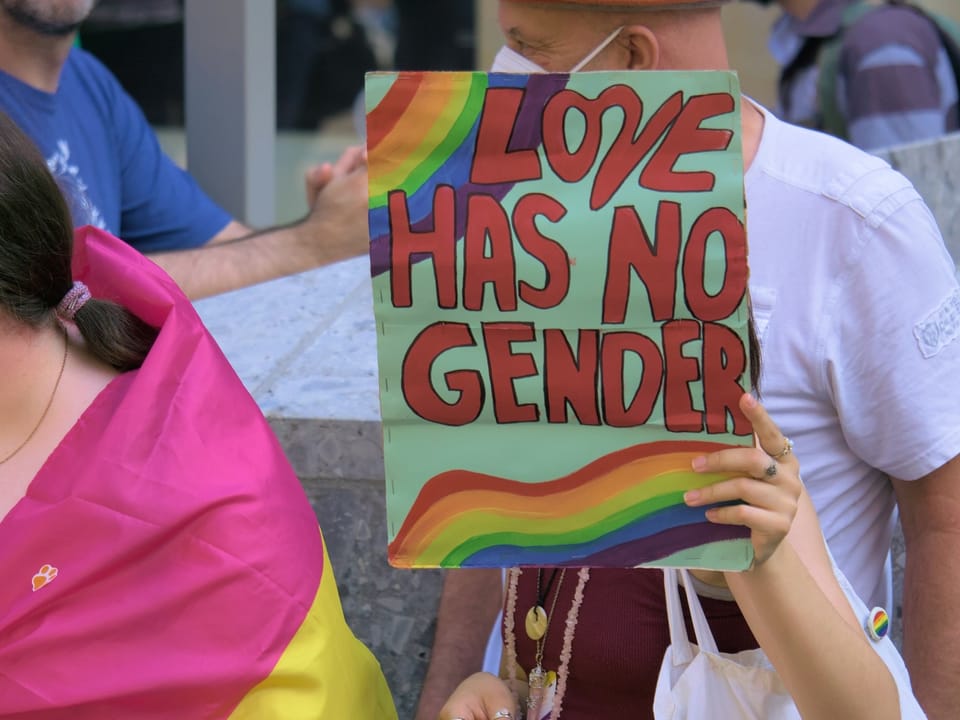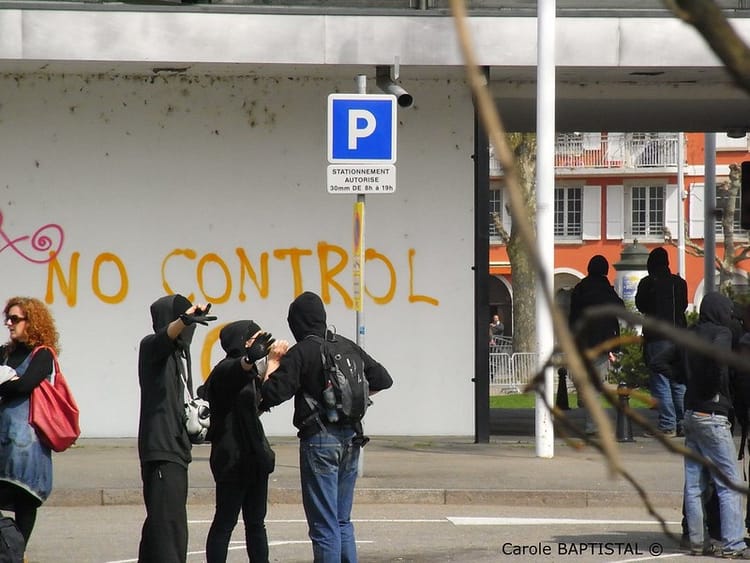Breaking the Gender Binary: Reclaiming Identity from Restrictive Ideologies

“The gateway is constantly swinging open and swinging shut.” [1]
Identity is not fixed; it is fluid, evolving, and deeply personal.
Consider the experience of someone who once identified strictly within binary terms but later found authenticity and comfort in a nonbinary or gender-fluid identity. Their journey reflects the natural evolution of self-awareness and highlights the importance of allowing space for personal growth and discovery.
Yet, politics and religions often attempt to force us into rigid categories, closing the gateway and imposing constraints that limit human expression.
Our experience of life has both determinant and indeterminate aspects.
Determinant aspects can be neatly categorized and described with words, while indeterminate aspects defy easy classification. The latter are better understood through narrative, metaphor, or personal feeling.
The labels we create to describe our identities shape our understanding and communication, but they are not absolute truths.
This is especially evident in the ever-expanding queer initialism, 2SLGBTQIA+.
The experience of who we are—and who we can become—continues to evolve.
The internet has played a crucial role in this expansion, allowing people to connect across the globe and refine the language we use to articulate the vast, complex, and fluid nature of identity. Online communities, social media platforms, and digital publications have facilitated the widespread adoption of terms like nonbinary, genderqueer, and demisexual, empowering individuals to find language that aligns with their lived experiences.
As Hugh Ryan explains,
“the internet has not only allowed new queer communities to form—it has also empowered queer people to spread their own ideas about sexuality and gender, based on their internal feelings and experiences, their own self-conceptions: what we call identity. These new identities track commonalities and solidarities across different lines, making space for things like change over time, nonbinary gender, and attractions that don’t follow orientation. When we talk about Gen Z’s uptick in queer identification, we’re not just seeing more people coming out, we’re also seeing new ways to be out—new ways to be queer.” [2]
Throughout history, religious and political institutions have reinforced rigid definitions of gender and sex, often as a means of maintaining social order.
Today, these systems continue to uphold binary thinking—right/wrong, male/female—despite growing evidence that gender exists on a spectrum. This insistence on fixed identities conflicts with both lived experiences and the natural world, where fluidity and diversity are intrinsic to life.
The false conflation of gender with biological sex, driven by heteronormative ideology, has stifled creative expression and personal freedom.
The notion that identity must fit within prescribed boundaries is an artificial construct that serves only to restrict human potential. Even the faintest light breaking through a crack in the heteronormative gender binary reveals the illusion of fixed definitions. It highlights the limitations of using words to describe other words in an attempt to capture the vast spectrum of human experience.
Identity is not dictated by artificial constructs but by personal truth and lived experience.
Religious and political laws that dictate who we can or cannot be are fabricated tools of control, benefiting only those in power. This is why dogmatic ideologies and religious beliefs are imposed upon children at the earliest age possible. By indoctrinating young minds before their critical thinking skills fully develop, institutions obstruct self-awareness and limit independent thought.
In some regions, such as Russia, Chechnya, Poland, the USA, and Uganda, anti-queer rhetoric and dogmatic oppression are aggressively reinforced through restrictive laws, social norms, and even evangelical home-schooling. This persistent repetition of anti-queer ideology attempts to erase the fluidity and validity of diverse identities.
The latest government order issued by the White House frames LGBTQ+ inclusion in education as “radical indoctrination,” a claim unsupported by evidence. (Note how the initialism if missing from the entire text; another from or erasure).
Policies like these attempt to erase discussions of identity and self-expression from schools, restricting young people’s ability to see themselves reflected in the world around them. Left unchallenged, such actions risk deepening social divides and undermining the very freedoms they claim to protect.
This 'warning' of social resistance by the oppressed is clear in the Tao Te Ching from over 2,500 years ago:
The people are increasingly difficult
To govern
Because those above increasingly act
As if they possess them.
So the people resist authority. [3]
Nature itself refutes these artificial constraints.
Many species display gender fluidity and diverse sexual behaviours, from clownfish that transition between sexes to penguins that form same-sex pair bonds.
These natural examples illustrate that identity and attraction are not fixed, binary constructs but rather part of the rich diversity of life. There is no visible evidence in the natural world that enforces rigid gender or sexual identity rules. Instead, nature thrives in patterns of organic diversity, unrestricted by human-imposed binaries.
Only the human mind seeks to impose order where none is needed, and in doing so, limits the freedom to live fully and authentically.
The freedom that many people now embrace—to explore and express the fluidity of their gender and sexual identity—has irreparably, and thankfully, torn the boundary’s gate off its hinges.
As more people break free from these constraints, we must continue to challenge artificial boundaries and celebrate the right to self-expression.
The gate isn’t just broken; it’s time to ensure it never returns to being shut.
Footnotes
- [1] Commentary on verse 1 (p. 78) from, Ames, R. T., Hall, D. L.. Daodejing: A Philosophical Translation. Ballantine. 2003
- [2] Who’s Afraid of Social Contagion? Our ideas about sexuality and gender have changed before, and now they’re changing again. Hugh Ryan.
- [3] (Verse 75) Hoff, Benjamin. The Eternal Tao Te Ching: The Philosophical Masterwork of Taoism And Its Relevance Today. New York: Abrams. 2021.





Member discussion